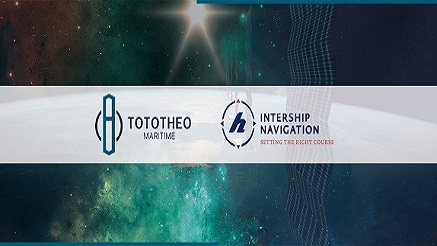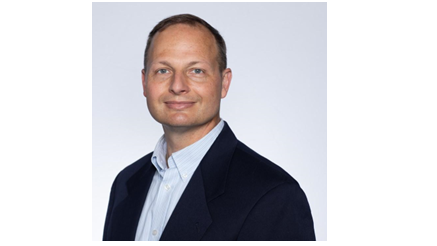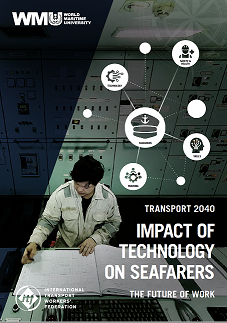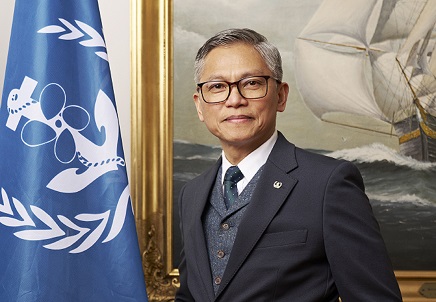Tototheo Maritime Provides Starlink to Intership Navigation
Tototheo Maritime, a leading provider of innovative communications and technology solutions for the maritime industry, announced that it is working with Intership Navigation to provide the Starlink service to its fleet. Intership Navigation will initially test the service on three of its ships, with the intention of implementing it across their entire fleet. Intership’s owned and managed fleet consists of various types of vessels, totalling approximately 70 ships. Additionally, Intership further manages approximately 50 ships on a crew management basis.
Starlink, developed by SpaceX, offers high-speed, low-latency satellite internet connectivity to ships at sea. It enables crew members to stay connected with their families and loved ones, while also providing faster and more reliable connectivity for critical ship-to-shore communications and operations.
"We are excited to be working with Intership Navigation to provide Starlink to their fleet," said Despina Panayiotou Theodosiou, co-CEO of Tototheo Maritime. "With the increasing demand for high-speed connectivity at sea, Starlink is a game-changer for the maritime industry. Crew members can now smoothly communicate with headquarters and land-based support staff, as if they are in any office around the globe. We are proud to be at the forefront of this technological advancement and look forward to supporting Intership Navigation's digital transformation journey."
"We are constantly seeking ways to enhance the onboard experience for our crew members and improve operational efficiency," said Dieter Rohdenburg, CEO of Intership Navigation. "The Starlink service provided by Tototheo Maritime is a major step in that direction, and we are pleased to be testing it on our ships. We are confident that this service will enable us to stay connected and optimize our operations."
Tototheo Maritime, headquartered in Limassol with offices in Greece and Germany, is one of the world's leading providers of communication and maritime technology services. It specializes in innovative, efficient, and operational solutions in the fields of digitalization, satellite and radio communications, automation and navigation systems.
Intership Navigation was founded in 1988 and since has grown from a small operation set up by the Hartmann Group of Germany into a major international shipowner and manager. Intership operates its diverse fleet from its offices in Limassol (Cyprus) and a network of technical support offices worldwide.

The Pasha Group Recognized by NAMEPA for Exemplary ESG Practices, Awarded the Maritime Sustainability Passport & Seal

WESTON, CT – June 13, 2023 - In an official announcement, Carleen Lyden Walker, Co-Founder and CEO of The North American Marine Environment Protection Association (NAMEPA), revealed that its prestigious "Maritime Sustainability Passport" (MSP) Certificate and Seal have been granted to the Pasha Group. Recognized for their unwavering commitment to environmental, social, and governance (ESG) practices, the Pasha Group has successfully fulfilled all the requirements of the program and earned NAMEPA’s MSP Certificate and Seal.
The MSP program, comprising NAMEPA's six Transparency Pillars--Waste Management, GHG Emissions, Education, Technology, Social, and Governance--evaluates companies based on their ESG metrics. The Pasha Group has showcased their dedication to the marine environment by demonstrating compliance with each of these pillars. This significant achievement is a testament to the Pasha Group’s proactive efforts to promote sustainability and responsible business practices in the maritime industry.
“The Pasha Group is honored to receive NAMEPA's Maritime Sustainability Passport and Seal,” remarked Kai Martin, VP, Chief Sustainability Officer. “Marine stewardship is a top priority for our team, and progressive initiatives such as NAMEPA's MSP Program play an important role in supporting an engaged and strong workforce to achieve a cleaner environment for our communities. The CSR/ESG Metrics that were identified, and the performance feedback provided, serve as an excellent guide to improve our systems, and operate as sustainably as possible today and in the future.”
The Pasha Group operates in both the maritime and automotive shipping worlds with a long-time focus on environmental protection. Prior to receiving their MSP, the Pasha Group’s Pacific Fleet was awarded Certificates of Environmental Achievement by the Chamber of Shipping of America for operating a total of 68 years in environmental excellence, demonstrating long-term commitment to environmentally aware practices. Furthermore, by officially receiving their MSP, the Pasha Group has proven that their dedication is not just spoken but tangible, aligning them even further with NAMEPA’s mission to promote industry best practices and to Save Our Seas.
The Pasha Group successfully passed NAMEPA’s MSP Program and qualified for the MSP Certificate & Seal, signifying they met or exceeded the program’s guidelines of best practices using ESG principles. Some of the program’s many benefits include increased efficiency, stakeholder visibility, and positive global impact.
The Maritime Sustainability Passport (MSP) Program was developed by the North American Marine Environment Protection Association and ESGplus LLC as an innovative ESG assessment tool tailored specifically for the maritime industry. Launched in June 2020, the tool enables companies, associations, educators, and individuals in the industry to evaluate their adherence to ESG (Environmental, Social, and Governance) principles.
In 2021, NAMEPA’s MSP program was awarded the 2021 Green4Sea Initiative Award. The Green4Sea award is given to an organization that has sparked, realized, or significantly contributed to a specific initiative toward greener shipping. NAMEPA is extremely proud of its contribution to the maritime industry with its MSP program being the first known standards program specifically structured for the Maritime Industry.
To learn more about NAMEPA’s MSP Program, the NAMEPA website or email ESG@nameapa.ne with any relevant questions. Currently, the program is offered to NAMEPA members at no cost to qualify for the Maritime Sustainability Passport and receive the MSP Certificate & Seal. Non-members are welcome to apply to participate at a cost of $5,000 or become NAMEPA members and have the fee waived. To protect the proprietary information of the qualifying companies, NAMEPA offers a non-disclosure agreement.
The North American Marine Environment Protection Association (NAMEPA) is a marine industry-led organization of environmental stewards preserving the marine environment by promoting sustainable marine industry best practices and educating seafarers, students, and the public about the need and strategies for protecting global ocean, lake, and river resources. Visit us at:www.namepa.net
Serving customers since 1947, The Pasha Group is a family-owned diversified global logistics and transportation services company. The Pasha Group’s Mission is to be a leader in providing customized, cost-effective, and profitable value-added services to the automotive, maritime, and relocation industries through the integration of Pasha’s network of global logistics entities and strategic partners. Through Commitment to investing in employees, facilities, equipment, and technology, they bring increased quality and profitability for themselves and their customers. For more information, visit www.pashagroup.com
ESGPlus LLC is committed to enhancing corporate governance, managing commercial and operational risk, and social & environmental compliance for our clients. We work hard to ensure best practices are in action to make the client’s maritime supply chain safer and more resilient while adding to social license and social equity.
Kai Martin, VP, Chief Sustainability Officer, The Pasha Group
Maritime Transport in 2040: How future technologies will impact seafarers
On 26 June, the International Transport Workers’ Federation (ITF) and the World Maritime University (WMU) launched a flagship report entitled, Transport 2040 - Impact of Technology on Seafarers - The Future of Work, during the International Chamber of Shipping’s Shaping the Future of Shipping event in Manila, Philippines. The research results provide an in-depth exploration of a number of maritime issues related to future ship technologies, including automation, and seeks to qualify the probable impact on seafarers.
Key findings include a Technology Road Map that offers comprehensive insights into future shipping technologies and their evolution in the maritime industry, looking primarily at automation and the technology transition. Divided into short, medium and long-term expectation horizons, the Technology Road Map covers industry trends within main and subtechnologies, including the relevant policies, opportunities and threats they respectively entail as reported by key stakeholders.
According to the report, the technological transition in the maritime industry will affect seafarers differently depending on their profession, rank and job function. Seafarer skill foresights are presented in alignment with the Technology Road Map, taking into consideration a wider scope of technological developments within smart, MASS and green shipping that will affect the future of work at sea. Findings include that upskilling and reskilling are important interventions in support of seafarers in light of the rapid change their working environment is set to undergo due to the advancement of smart and green technologies.
Throughout the report, the importance of training is highlighted as critical to the success of the transition towards automation and digitalization. The report also projects that technological transition in the industry is expected to result in the emergence of a range of new kinds of jobs for seafaring professionals. The report projects that the impact of such new technologies on seafarers will be influenced not only by their individual preparedness for change but also by the conditions offered by each country. In support of these findings, 23 Maritime Country Profiles are aligned with the Technology Road Map and skills foresight.
The impact of advanced new technology in the maritime industry on Occupational Safety and Health (OSH) of Seafarers is reflected in four Country Report Case Studies that investigate technology-related OSH issues including the risk of automatic surveillance by Artificial Intelligence (AI) and big data, technostress, safety and health concerns on board battery-powered vessels, and internet use.
Two key messages include the necessity of supporting seafarers with lifelong learning and career development as well as the importance of ensuring that the adaptation of advanced technology also promotes the health and wellbeing of seafarers. Recommendations include that these priorities must address the adverse effects of technology that may potentially harm seafarers.
The report provides the necessary insights and analytical resources to support the Maritime Just Transition which will require the involvement and commitment of every maritime stakeholder to the future of the industry.
To access the full report, click here.
About the Transport 2040 - Future of Work Project
The Phase 1 Report - Transport 2040, Automation, Technology, Employment - was launched in 2019 and provides an overview of the most significant global trends in automation and technology affecting transport workers. Key findings indicated that technological advances will be gradual and vary by region, and that workers will be affected in different ways based on their skill levels and the preparedness of different countries.
Building on the insights of Phase I, Phase II began in May 2020 looking specifically at technology evolution, the future skills and competencies, as well as occupational health and safety of seafarers. Technology evolution considerations include green, digital and smart technologies as they relate to maritime autonomous surface ships (MASS) as well as conventional shipping.
About ITF
The International Transport Workers' Federation (ITF) is a democratic global union federation of 670 transport workers trade unions representing over 20 million workers in 140 countries. The ITF works to improve the lives of transport workers globally, encouraging and organizing international solidarity among its network of affiliates. The ITF represents the interests of transport workers' unions in bodies that take decisions affecting jobs, employment conditions or safety in the transport industry, such as the International Labour Organisation (ILO), the International Maritime Organization (IMO) and the International Civil Aviation Organization (ICAO).
About WMU
The World Maritime University (WMU) in Malmö, Sweden is a postgraduate maritime university founded in 1983 by the International Maritime Organization (IMO), a specialized agency of the United Nations. The mission of WMU is to be the world centre of excellence in postgraduate maritime and oceans education, professional training and research, while building global capacity and promoting sustainable development. WMU is an organization by and for the international maritime community and is committed to the United Nations Sustainable Development Goals Agenda.

Professor Maximo Q. Mejia, Jr. Takes the Helm at WMU

On 29 June, Professor Maximo Q. Mejia, Jr. assumed office as the eighth President of the World Maritime University (WMU). Appointed by the Secretary-General of the International Maritime Organization (IMO), who also serves as Chancellor of the University, President Mejia assumes the role of Chief Executive Officer, overseeing and directing the academic programmes, operations and administration of the University. Professor Mejia is the first President from Asia and the first President who is a graduate of WMU.
Regarding his appointment, President Mejia said, “I thank the IMO Secretary-General and WMU Chancellor for granting me the esteemed privilege to lead the World Maritime University. Our unique connection to the IMO, our extensive global network, and our stellar postgraduate education prepare WMU graduates to serve as a force for good in the maritime and oceans sectors. I look forward to leading our eminent maritime and oceans scholars, researchers, and professionals to increase global capacity building in support of a blue economy.”
President Mejia is an accomplished global leader and scholar in maritime governance, policy, and administration. With over three decades of professional and academic experience, Professor Mejia is a passionate international advocate for the promotion of safe, secure, sustainable, and efficient shipping on clean oceans. He joined the WMU Faculty in 1998 and has held various positions within the University including Director of the PhD Programme, Head of the Maritime Law and Policy Specialization, Associate Academic Dean, and Nippon Foundation Professor of Maritime Policy, Governance, and Administration.
Professor Mejia served as Administrator/Director General at the Maritime Industry Authority (MARINA) from 2013 to 2016, heading the government agency responsible for integrating the development, promotion, and regulation of the maritime industry in the Philippines. From 1988 to 1998, he progressively held various positions in the Philippine Navy and Philippine Coast Guard including Assistant Chief of Staff for Navigational Safety and Deputy Executive Director of the Multisectoral Task Force on Maritime Development.
In 2013, Professor Mejia was included in the Lloyd’s List 100 Most Influential Persons in the Shipping Industry. He has served on several senior diplomatic assignments including Head of Delegation of the Philippines to IMO meetings (2013 -2016), Special Envoy of the President of the Philippines to the Inauguration of the Expanded Panama Canal (2016), and Chairperson of the 31st ASEAN Maritime Transport Working Group (2016).
About WMU
The World Maritime University (WMU) in Malmö, Sweden is a postgraduate maritime university founded in 1983 by the International Maritime Organization (IMO), a specialized agency of the United Nations. The mission of WMU is to be the world centre of excellence in postgraduate maritime and oceans education, professional training and research, while building global capacity and promoting sustainable development. WMU is an organization by and for the international maritime community and is committed to the United Nations Sustainable Development Goals Agenda.
Interview Requests - contact the Office of the President, op@wmu.se with cc to Maia Brindley Nilsson, Communications and Conference Officer, mbn@wmu.se

